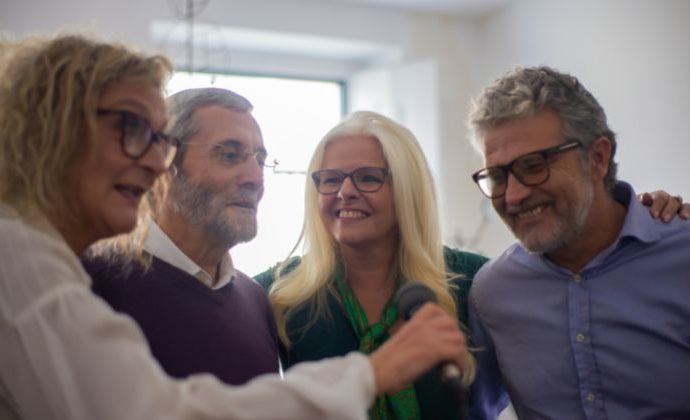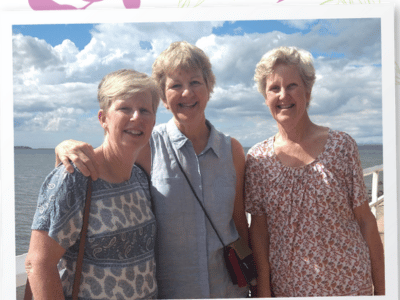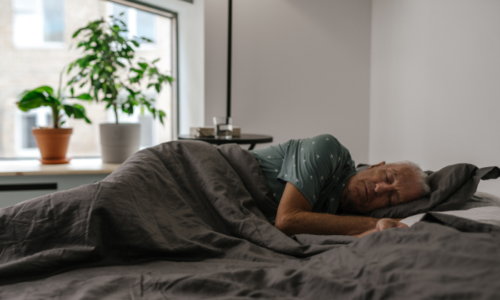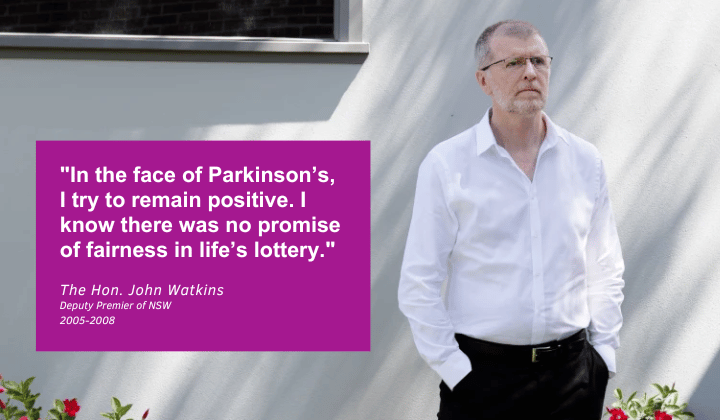Communication impairment in voice and speech changes affects most people living with Parkinson’s eventually.
The most common communication disorder is hypokinetic dysarthria, which causes rigidity and slowness of communication systems, including breathing, swallowing, voice, and speech. It can lead to reduced voice volume, hoarseness, imprecise articulation, and tremors.
Studies have shown that singing offers an engaging way to enhance voice and communication for people living with mild to moderately severe Parkinson’s. Intensive singing can increase vocal loudness, respiratory muscle strength, and voice-related quality of life.
Jenny Yoston is a neurological music therapist and founder of the Music Affect Centre in Canada. She uses music in her work with residents in a senior long-term care facility and in her private practice. She has found that music connects with people emotionally and socially, and she has seen its physical benefits.
“Singing is a great way to slow the progression of Parkinson’s. It’s particularly beneficial for speech and swallowing, and the sooner you start, the better.”
She notes the rise in research using music and its elements for people with neurological disorders.
“Scientists and neurologists are collaborating with those in the music psychology and music therapy fields. I’m excited about these collaborations and their future findings. There is so much more to music. We just need to learn to share how to use its power!”
When the pandemic began, she saw that many of her Parkinson’s patients were isolated and unable to come to appointments, so she developed a DVD people could use at home.
“ParkinSing is a music and fun scientific approach to vocal exercises and respiratory maintenance for people with Parkinson’s. With the DVD, they can still maintain where they were during their in-person sessions in a fun way.”
Choral Singing
Paula Wolfson is an award-winning performer with a long career in professional theatre. She also works with vulnerable populations using music and is a certified artist-educator.
Paula became involved with a new choir through a study conducted by Dr. Frank Russo and Esztella Vezer of Ryerson University’s Smart Lab in Toronto to see if “emotional” singing would impact the Parkinson’s mask (the difficulty some people with Parkinson’s have in producing facial expressions).
The results are still being finalised but showed that overall, the effects of ongoing group singing are beneficial on many levels, as Paula indicates.
“Voices, both speaking and singing, grow stronger; breath is better controlled as the expressive muscles of the face are exercised; there is a deep sense of belonging and communal support; there is pride and a feeling of accomplishment as the brain is engaged with learning new songs and vocal techniques.”
Paula has continued to lead the Singing With Parkinson’s choir. She emphasises that participants don’t need any prior group singing experience.
“Partners and caregivers are welcome to join. Our choir participants tell us that the social hour after the singing session is equally as important as the singing because it provides a safe community where they can speak openly.”
DVDs or the streaming version of Jenny Yoston’s vocal exercises can be purchased at www.musicaffectcentre.com
For more evidence-based information and advice call the Parkinson’s NSW InfoLine: 1800 644 189
Related content:
Choir now running each week in Inner West Sydney
New choir for people with Parkinson’s in Mosman









